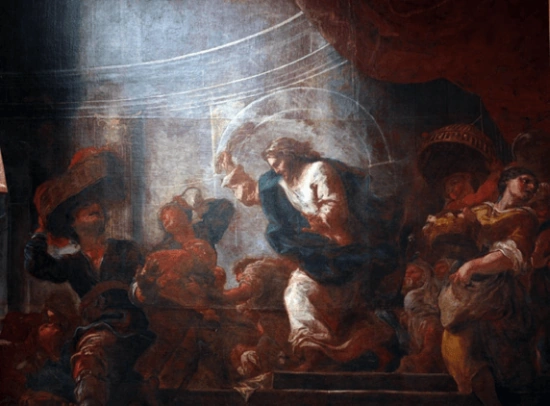430. 'A little one' or little child in the Word means innocence, and also charity, for true innocence does not exist without charity, nor true charity without innocence. There are three degrees of innocence, which are distinguished in the Word as sucklings, infants, and little children. And because true innocence cannot exist without true love and charity these same three, sucklings, infants, and little children, also mean three degrees of love, which are the tender love which is like that of a suckling for mother or nursemaid; the love which is like that of an infant for parents; and charity which is like a little child's attitude towards its teacher; as in Isaiah,
The wolf will dwell with the lamb, and the leopard will lie down with the kid, and the calf and the young lion and the fatling together; and a little child will lead them. Isaiah 11:6.
Here 'lamb', 'kid', and 'calf' stand for the three degrees of innocence and of love, 'wolf', 'leopard', and 'young lion' for their opposites. 'A little child' stands for charity.
[2] In Jeremiah,
You commit great evil against your own souls by cutting off from you man (vir) and wife, infant and suckling from the midst of Judah, not leaving you a remnant. Jeremiah 44:7.
'Man and wife' stands for things connected with the understanding of truth and with the will for good. 'Infant and suckling' stands for the initial degrees of love. That 'infant' and 'little child' mean innocence and charity is quite clear from the Lord's words in Luke,
They brought infants to Jesus that He might touch them. He said, Let the little ones come to Me and do not hinder them, for of such is the kingdom of God. Truly I say to you, Whoever does not receive the kingdom of God like a child will not enter it. Luke 18:15-17.
Being innocence itself and Love itself the Lord Himself is called a Little One or Little Child in Isaiah 9:6, where He is also referred to as Wonderful, Counsellor, God, the Mighty One, the Everlasting Father, the Prince of Peace.







